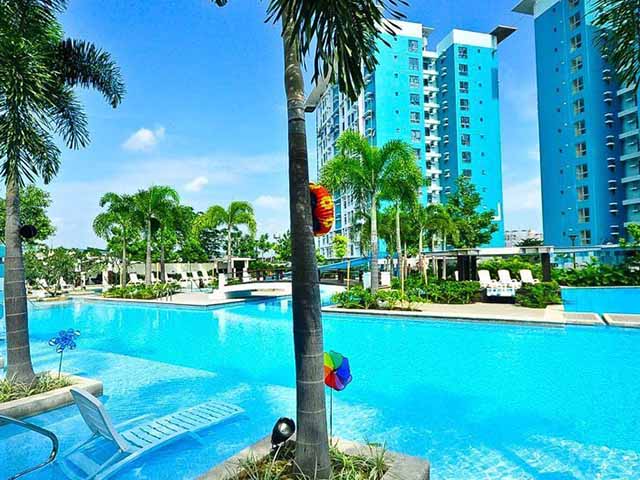Singapore’s real estate market has long been a magnet for investors, both local and international. However, the government’s stringent regulations significantly impact condo investment in the city-state. Understanding these regulations is crucial for any potential investor looking to navigate Singapore’s complex property market. This article delves into the various government regulations affecting condo investment in Singapore and examines their implications for investors.
Overview of Singapore’s Property Market
Singapore’s property market is renowned for its stability, transparency, and robust legal framework. The government has implemented several measures to ensure the market remains sustainable and affordable, particularly for Singaporeans. These measures include cooling measures, taxes, and restrictions on foreign ownership, which all play a pivotal role in shaping the investment landscape.
Cooling Measures
Cooling measures are policies designed to prevent the property market from overheating. The Singapore government has introduced several such measures over the years to curb speculative buying and ensure long-term stability.
Additional Buyer’s Stamp Duty (ABSD)
One of the most significant cooling measures is the Additional Buyer’s Stamp Duty (ABSD). This tax applies to second and subsequent property purchases and varies based on the buyer’s residency status and the number of properties owned. For instance, foreign buyers currently face an ABSD of 30%, while Singapore citizens pay 17% on their second property and 25% on their third and subsequent properties.
The ABSD aims to deter speculative buying, which can drive up property prices unsustainably. For condo investors, this means higher upfront costs, which can affect the overall return on investment (ROI).
Loan-to-Value (LTV) Ratio
The Loan-to-Value (LTV) ratio dictates the maximum amount a buyer can borrow to finance a property purchase. In recent years, the government has tightened LTV limits to reduce the risk of over-leveraging. Currently, the LTV ratio for a first housing loan is set at 75%, while it drops to 45% for second loans and 35% for subsequent ones.
These restrictions aim to ensure that buyers have sufficient financial backing and do not rely excessively on borrowed funds. For investors, this means a higher need for capital outlay, impacting their cash flow and investment strategy.
Property Taxes
Property taxes in Singapore are another significant factor influencing condo investment. These taxes include the Annual Property Tax, which is based on the property’s annual value, and the Seller’s Stamp Duty (SSD), which applies to properties sold within a specified holding period.
Annual Property Tax
The Annual Property Tax is calculated based on the property’s annual value, which is an estimate of the rental income the property could generate. The tax rate varies depending on whether the property is owner-occupied or rented out. For non-owner-occupied residential properties, the tax rate ranges from 10% to 20%.
For condo investors, especially those renting out their units, the Annual Property Tax represents a recurring expense that can impact the net rental yield.
Seller’s Stamp Duty (SSD)
The Seller’s Stamp Duty (SSD) is levied on properties sold within three years of purchase. The SSD rates are 12%, 8%, and 4% for properties sold within the first, second, and third year, respectively. This measure discourages short-term speculation and encourages longer-term investment.
For condo investors, the SSD can significantly reduce profits if the property is sold within the stipulated period, thus promoting a more stable and less speculative market.
Foreign Ownership Restrictions
Foreign investors are subject to additional restrictions in Singapore’s property market. While they can purchase private condominiums without prior approval, they are generally prohibited from buying landed properties. Moreover, the ABSD rate for foreign buyers is substantially higher, as mentioned earlier.
These restrictions aim to prioritize housing availability for Singaporeans and mitigate the impact of foreign capital on property prices. For foreign investors, these rules necessitate careful consideration of investment strategies and potential returns.
Impact on Market Dynamics
The government’s regulatory framework profoundly impacts market dynamics, influencing supply, demand, and price trends. By curbing speculative demand, these measures help maintain price stability, which benefits genuine homebuyers but poses challenges for investors seeking quick profits.
Price Stability
Government regulations, particularly cooling measures, have effectively stabilized property prices in Singapore. This stability is beneficial for long-term investors seeking steady appreciation rather than volatile price swings. However, it also means that the opportunities for rapid capital gains are limited compared to less regulated markets.
Rental Yield
The restrictions on financing and additional taxes can compress rental yields for investors. Higher upfront costs and recurring expenses like property taxes reduce the net income from rental properties. Investors must, therefore, conduct thorough financial analyses to ensure their investments remain profitable under these conditions.
Market Entry and Exit
Stringent regulations can also affect the ease of market entry and exit. Higher ABSD rates and the SSD make it more expensive to buy and sell properties, encouraging longer holding periods. This can be advantageous for investors with a long-term horizon but may deter those looking for more flexible investment options.

Strategic Considerations for Investors
Given the regulatory landscape, investors need to adopt strategic approaches to maximize their returns in Singapore’s condo market. Here are some key considerations:
Long-Term Investment Horizon
Given the government’s emphasis on market stability and the deterrents against speculative buying, a long-term investment horizon is advisable. Investors should focus on properties with strong rental potential and gradual appreciation over time.
Financial Planning
Thorough financial planning is essential to navigate the various taxes and financing restrictions. Investors should ensure they have adequate capital reserves to meet higher down payment requirements and ongoing tax liabilities.
Market Research
In-depth market research can help identify areas with high growth potential and rental demand. Understanding local market trends and demographic shifts can provide a competitive edge in selecting profitable investment properties.
Professional Advice
Engaging with real estate professionals, including agents and financial advisors, can provide valuable insights and guidance. Their expertise can help investors navigate regulatory complexities and make informed decisions.
Conclusion
The impact of government regulations on condo investment in Singapore is significant and multifaceted. While these regulations ensure a stable and sustainable property market, they also impose challenges for investors, particularly those seeking short-term gains. By understanding and strategically navigating these regulations, investors can still find lucrative opportunities in Singapore’s condo market. For additional tips and information about the impact of government regulations on condo investment in Singapore, be sure to visit Emerald Of Katong to learn more.





